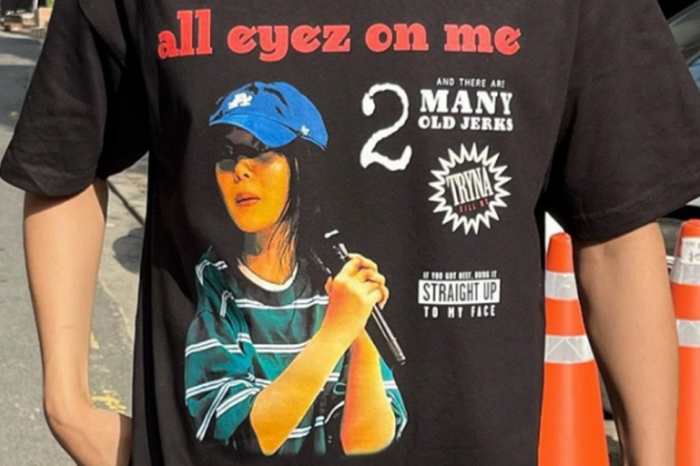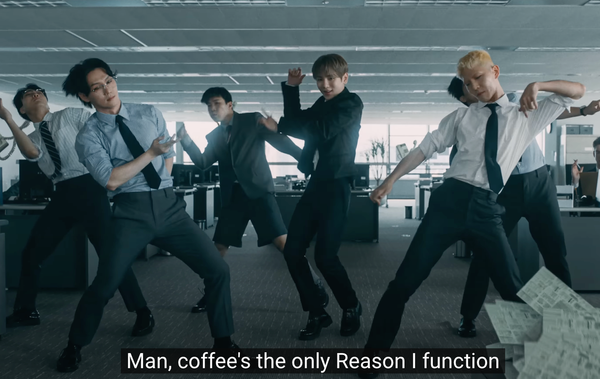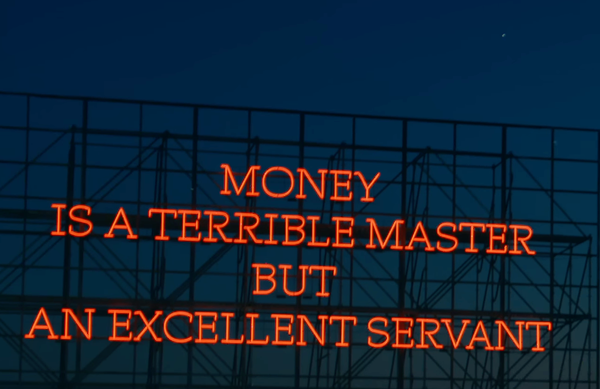Omega X & Loona contract wins open up 2023 as a year for change in K-pop
It feels like every year we proclaim this one a Big year for change in K-pop in January and December, but as I write this on January 16, 2023, it really feels that way. The year has just begun, but courts have already given two major wins to K-pop stars alleging abuses and breach of contract, namely Omega X and Loona.
At the end of last year, I wrote about Omega X’s situation and Loona’s briefly as it was just beginning. If you missed it, here’s what’s going on:
Omega X was on tour in the Americas when reports and videos began alleging that they were being abused by their CEO and mismanaged overall. They ultimately were apparently left in the US without tickets to return to Seoul, and went viral throughout the situation as fans rallied around them. After they got back, they sued their company, Spire Entertainment. On January 11, the band announced through their own-run social media accounts that they had won their lawsuits and their contracts with Spire were suspended.
LOONA’s situation is a bit more convoluted, and began over a year ago when member Chuu attempted to terminate her contract with the group’s company, Blockberry Creative, at the end of 2021. In March 2022, it was reported that she won a partial injunction, and later on it turned out that her contract had been reevaluated. Chuu has been the face of LOONA in South Korea, where she’s a popular variety talent who is almost constantly working, though reports have revealed Blockberry (henceforth BBC) wasn’t necessarily supporting her properly despite her promoting LOONA immensely. As the dispute occurred over the first half of 2022, Chuu’s presence in the group was diminished, not even touring internationally with them, while simultaneously other members would occasionally comment on circumstances, like the members of the relatively popular group, which operates with an apparently high production budget, not receiving pay.
In November, BBC announced rather suddenly thatChuu had been removed from the group, allegedly for abuse of power. Fans and industry insiders clamored against the allegations, saying it was antithetical to Chuu’s personality and work ethic. A few days later, all but two of the eleven remaining members filed to suspend their contracts with BBC. A few days after that, BBC announced a LOONA comeback. Fans were outraged, and boycotted, leading to the album’s release being put on hold on December 22. On January 13, it was reported that four members had won their injunctions to suspend their contracts with BBC, while five members’ contracts were upheld due to differences in contract terms. Now, the future of LOONA is TBD, with BBC alleging they’ll release a statement in the near future to explain what’s next, while the women of LOONA seem to be over it, launching their own social media accounts and talking publicly about their frustrations.
In both Omega X and LOONA’s instances, fan support was integral to raising awareness of the situations where artists are fighting for their rights against entertainment companies that were taking advantage of them, and personally there’s something inspiring about that.

But beyond the fan mobilizations helping to rally support, I think OX and LOONA’s recent legal cases show a shifting of the winds in South Korea’s entertainment industry. In both cases, the members of the two groups, each represented by a relatively small entertainment company, took initiative to take action in unison after facing workplace abuses. Rather being a long, drawn-out legal experiences, the courts rapidly ruled in the artist’s favor, fully in Omega X’s case and partially in LOONA’s.
Historically, contract disputes between K-pop companies and artists take months, if not years, during which talent is typically unable to work or appear publicly. But things are changing, and I imagine many at entertainment companies are taking a look at their own talent and realizing that if they misstep, talent may likely have the upper hand nowadays.
Although I’m not a legal expert, and I have doubts that South Korea’s entertainment law is going to change immediately in response to LOONA and OX’s cases, but it does feel like it’s perhaps time for the K-pop industry standard contracts to be reevaluated. It’s been ages since the standardized seven-year contract became the norm, and several since some laws were enacted to protect younger workers. Workplace rights laws often change overtime, and perhaps that time is upon us. In the past two years, we’ve seen several artists, prominently GOT7 and iKon, part ways with their former companies, and others take action when facing workplace abuses. If laws don’t catch up, I imagine some smart lawyers are likely watching these situations and currently trying to figure out a way to reframe contracts to make it easier for formative K-pop companies and talent to get through disagreements in a way that benefits the founding companies without getting them dragged across the internet and into courts.
While I doubt we’ll ever truly see a completely equitable entertainment contract (in any industry, really…), we know from past experiences that typically workplaces only become more favorable for employees after being held accountable,* and that’s what we’re seeing here. Hopefully it will have a positive impact, and better the industry where talent is not abused and robbed blind in pursuit of their dreams.
*And hopefully the industry as a whole will one day learn to value the workers behind-the-scenes as much as the talent in front of the camera and stop overworking staff, but that’s a newsletter for another day.
It’s been a minute since my last standard newsletter, so some updates.
What I’ve written:
Launched the first Notes on K-pop’s column, 5 Minute Focus, a voicenote interview style. The first with ASTRO’s members Moonbin & Sanha is out now. I’m looking to coordinate some more, so if you’re an industry insider who would like to be featured and/or a PR rep of talent, please reach out to me (tamarhermanwrites@gmail.com).
Had a lot of fun delving into my favorite K-pop songs and albums of 2022.
I also blurbed a bit for other outlets: I discussed NMIXX’s outstanding Dice for Teen Vogue, and Carly Rae Jepsen’s The Loneliest Time for UPROXX.
What I’m listening to: As I was writing, both GOT the Beat and Choi Yena’s new albums dropped. I loved their 2022 releases, and I’m really enjoying them on first listen. Since I was writing, I haven’t watched the music videos yet but that’s my plan the minute I hit publish.
What I’m reading: Honestly, I feel back into reading romance novels, three a day sometimes! There’s nothing wrong with this, but I feel like I’d like to spend 2023 diversifying my tastes a bit, so I’ve been taking recs for must-reads. Please let me know in the comments if there’s anything you think every single human on planet earth must read. One that I’d suggest would be The Courage to Be Disliked by Fumitake Koga and Ichiro Kishimi. I read it annually, usually after a big blow up on social media where people tell me I should die like the cockroach I am for some reporting they don’t like.
Relatedly, I mentioned last year that I’d like to start a K-pop-oriented reading group (over zoom, unless you all are in NYC!) and I’m finally ready to do it. If you’re interested, please sign up here.
Upcoming: I’ll probably keep promoting it throughout the month (or not, if I’m embarrassed by sounding stupid!), but I’ll be appearing in the upcoming TVING documentary, K-pop Generation. I was actually told it’d have a different name and different format from what the trailer appears to show, so I’m excited to see how it turns out.
Thank you for reading Notes on K-pop. This post is public so feel free to share it.



